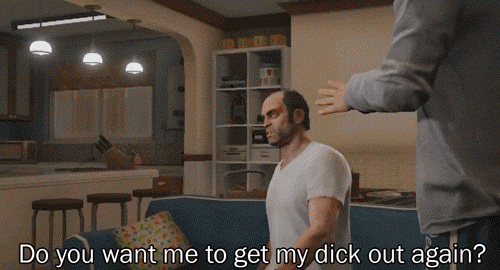How to spare your collaborator’s feeling of authorship
Ideas are very personal. Works of art too. Collaborators and clients can feel a very strong emotional attachment to works and this blog post intends to give tips to survive in this too sensible world.

How to spare your collaborator’s feeling of authorship
In a team of redactors as much as in an ordered work, the scenarist - rereader, and such - can be faced with colleagues or clients who have a strong feeling of authorship toward the project you’re working on. No need to mention that the scenarist must not misplace his pride, he must be able to defend his ideas and listen to critics. But not everyone can take a step back.
First of all, this article isn’t about criticizing this feeling of authorship, even if it’s misplaced. This is nevertheless a problem you can face pretty often. What is it, where does it come from, and how can you work around it ?
The french authorship concept and its consequences on the relationship between the author and ones text
I don’t know if it’s a particularity of the psychology of french people. Culturally speaking, however, everything is made in France to settle a strong affective link between the author and ones text.
A strong cultural inducement
The concept of authorship is very old. I’m thinking for example of Rabelais who obtained a royal privilege from the cardinal of Châtillon in 1550, which prohibited the impression or the modification of Rabelais’ works without his consent, preventing him from being accused of heresy (again) with texts he didn't write. From the end of the Middle Ages to nowadays, authorship enforced itself philosophically and legally. One usually mention Beaumarchais as a hinge in the history of french author’s rights.
The law endorse it
French author’s rights are made of two types of rights : the "moral right" and the "proprietary right". The proprietary right is about the commercial relationships concerning the work and makes it only partly transferable. In another hand, the moral right is "perpetual, inalienable, imprescriptible". It means that the author will always be linked to the text regarding ones "paternity" (that’s the french term, isn't it deliciously manly). The copyright system, such as in the United States, makes the work entirely transferable to someone else, this is an entirely proprietary system. Since the Raynal VS Atari case, french author’s rights may apply to video games.
In short, a text in France will always be the tiny lil goochie coochie baby of the author. This affective relationship can be very strong, especially with artistic creations, because it is always personal, and criticizing it can be interpretated as criticizing the person that made it.
The literary talent transmitted by the sacrosanct Pantheon
Another typically french imperfection is the belief that the literary talent comes from a transcendental mind opening through the Culture (legitimate, Parisian, bourgeois). Even when the university puts a commendable effort to learn from the USA’s creative writing, there is almost no way to face the question of a writing technique. Because such a technique probably doesn’t even exist in France. The french writer is perpetually in the shadow of the great french writers figures of the XIXth century. The french writer is just a reader.
Then, even in a professional field, the writing is still not really perceived as a discipline that needs technique and / or experience to achieve quality and a desired effect. The legitimacy of the authorship is more important.
Tact
The scenarist doesn’t have any ego (right ?)
As soon as a scenario is written, it must be criticized to hell in order to make it respond to demands, make it match with the project, make it include the good ideas of everyone (because more brains makes more ideas). This is a balance of power to the benefit of the text itself, which means for the player. A lot of feedback conversations must be planned with the team or the client before the scenario reaches its final state.
We’re talking about a professional relationship with the text. But if you reread or rewrite something that was written by someone without his consent, clashes occur. In the same way, it would be fair for me to send you Trevor if you present to me a rewrite of one of my short stories without my consent.

Tension
This is more professional to keep oneself clean of this tendency, but you can’t blame other people to act like this. The mentality evolves slowly, and you will run into this kind of problem frequently, so you can’t convince everyone every time.
To close this reflection, here’s one story that happened to me. In a time I worked in a serious game development company, one client insisted on writing the scenario himself. He obviously didn’t know a thing about gaming, or maybe even writing : this was incomprehensible, and so unplayable. You couldn’t see what you were doing as a player in this dialog-based game. Moreover, the client supposed that "serious" meant "the least fun possible". The boss then asked me to rewrite it partly, so we could present it to the client and convince him do the writing too. The next day, the boss talked about the "hysteria" of the client.
I could learn some basic survival rules from this kind of story. I now transmit them to you.
Basic rules to avoid tension if you have to work on a text
• Don’t criticize anything before someone asks for it
You know your advice is important. Your interlocutor too. If one wants to hear from you, one will ask.
• Before working in any way on a text, establish what you precisely have to do with the author or the interlocutor that take the responsibility.
What do they want you to do ? To criticize the form, to make suggestions about the substance ? A commentary, or a direct modification of the text ? About spelling, syntax, formulation, style ?
• Before working in any way, save the original.
You must be able to show it untouched. It’s you shield against the people possessed with the authoritative paternity.
• If you wish to intervene without being asked, propose your expertise without showing your personal opinion.
Nobody wants to work with an annoying person, moreover if this person is right. It is, however, a well-known fact that a work intended for an audience must receive as many different opinions as possible.
• In general, don’t use stigmatizing terms. Be positive and constructive.
It is possible to criticize a text without belittling it. We must not be judgmental, but look for the effect we’re seeking: does it achieve its objective optimally? Replace "this text is banal / cliché / etc.", which is not constructive, with "here, we have some space to reinforce the effect of brutality / cunning / kindness / etc. conveyed by the character", which opens the way to proposals.
• If someone who is not the author asks you to work on a text, make sure that person takes the consequences.
Ask if the author is aware of it and agrees with it, and warn te person about his possible reaction. After that, do your job normally, with the precautions mentioned above. You even have the right to giggle discreetly if the author of the text gets mad eventually.
That being said, this is essential to not censor yourself: rereading, criticizing, correcting, writing or rewriting the text of someone else is a delicate task, but it must be done with strength and determination to be done well. You are here to bring your power of creation; be certain that the feedbacks you must claim to ensure that you meet the expectations will moderate your proposals.
Great games are bets, and yet even they have been criticized or restrained by the collaborators before being shown to the public. Assert your point of view, not your pride.
About the Author(s)
You May Also Like













